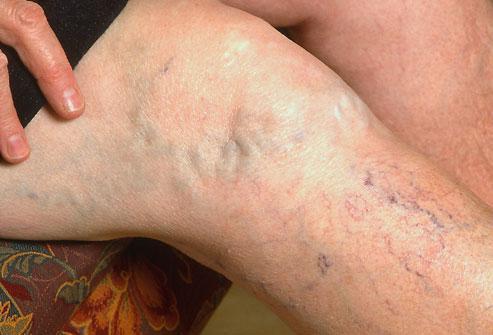Blog

If you have high blood pressure, your risks for serious health complications, including heart disease, heart attack, and stroke, increase significantly.
At HeartCare Associates of Connecticut, LLC, our board-certified cardiology specialists work closely with you to manage your blood pressure and keep it well-controlled.
Through nutritional counseling and lifestyle modifications, you can keep your blood pressure within normal range and enjoy a long and healthy life.
Understanding the effects of high blood pressure
Your blood pressure is a measurement of how much blood your heart pumps and how much resistance to that blood flow there is in your arteries.
High blood pressure, also known as hypertension, describes a condition where the force of your blood against the walls of your arteries is too high. This may be due to an underlying health issue or for no specific reason.
Unfortunately, high blood pressure doesn’t cause symptoms until the condition is serious. Before you experience dizziness or headaches related to high blood pressure, it’s likely that the damage has already been done internally.
For this reason, it’s important that you receive routine blood pressure screenings as part of your preventive health care plan.
Routine blood pressure screenings are advisable for anyone over 18, especially if you have a family history of the condition or if you have secondary hypertension – high blood pressure caused by an underlying health condition like thyroid disorders, kidney issues, or obstructive sleep apnea.
Gaining control of your blood pressure
Many people require medications to lower their high blood pressure. However, medications aren’t the only way you can stay in control of your blood pressure levels.
In fact, with the right diet and some lifestyle modifications, you may be able to lower your blood pressure naturally and prevent the need for medications altogether.
Here are some tips for controlling your blood pressure:
Upgrade your diet
Eating a low-salt diet and plenty of fresh fruits, vegetables, and low-fat dairy products can go a long way in lowering your blood pressure and preventing heart damage.
You should also limit how much alcohol and caffeine you drink and stay hydrated by drinking plenty of water each day.
Pay more attention to the labels on foods you buy, and avoid eating foods that are high in cholesterol and saturated fats.
Keep moving
Regular exercise is essential for keeping your blood pressure levels healthy. You should aim to do at least 30 minutes of physical activity every day.
With a good diet and exercise plan, you can also lose excess pounds and maintain a healthy weight. Safe weight loss can reduce your blood pressure and make it easier to control without medications.
Quit smoking
If you haven’t been able to quit yet, let your blood pressure motivate you to follow through with a smoking cessation program.
By quitting smoking now, you can begin lowering your blood pressure levels naturally. Quitting also boosts your energy levels, protects your heart, and preserves your overall health.
Learn to manage your stress
Persistent stress can play a role in high blood pressure and reduce your overall quality of life. To reduce your stress levels at work and home, take time out to practice breathing and meditative techniques.
In just a few minutes a day, you can incorporate stress-reducing exercises into your daily life to lower your blood pressure and increase your happiness.
By working with our team and making the necessary changes in your life, you can lower your blood pressure on your own and reduce the likelihood you’ll need to depend on medications.
If it’s been longer than a year since your last blood pressure screening, schedule a high blood pressure evaluation with the team at HeartCare Associates of Connecticut. You can call the office nearest you or request an appointment online today.

A Valentine’s Gift for Your Heart
In February, it’s common to run into heart-shaped boxes, greeting cards, and balloons. We often think of this month as a time to share our love for the special people in our lives. But as you take time to celebrate loved ones, it’s also an important reminder to care for your heart. American Heart Month

Healthy Start to the New Year!
Want to make 2023 your healthiest year yet? The gift of a healthy lifestyle is one of the best things you can give to yourself this year. If you’re tired of feeling stressed, having low energy, or getting sick easily, then we’ve got some tips to help boost your overall wellness. Start the new year

Dehydration and Stroke: How Are They Linked?
One of the biggest rules of thumb to follow for good health is to drink plenty of water every day. Drinking water can help prevent complications from dehydration — a condition that can lead to even more serious health problems, including a stroke. At HeartCare Associates of Connecticut, LLC, our skilled cardiologists specialize in high-quality medical care for

4 Ways to Prevent Hypertension
An estimated one in three Americans have hypertension (high blood pressure), and many aren’t even aware of their condition. At HeartCare Associates of Connecticut, LLC, our skilled cardiovascular specialists offer comprehensive medical care to help you get your blood pressure under control. We also prioritize preventive services that can lower your risk for developing hypertension in the first place. Why you have hypertension

Why Do My Leg Veins Hurt?
The veins in your legs have a difficult job. Every day they must fight against the force of gravity to move blood from the lower half of your body back to your heart. When your veins aren’t functioning properly, it can cause pain and other complications that can put your cardiovascular health at risk. At HeartCare

How to Plan a Diabetes-Friendly Meal
Making healthy food choices isn’t always easy, but if you have diabetes, it’s essential that you plan ahead. At HeartCare Associates of Connecticut, LLC, our team of physicians offer complete diabetes care. Not only can we ensure you have the medications you need to control diabetes, but we can also help you make the necessary lifestyle and









